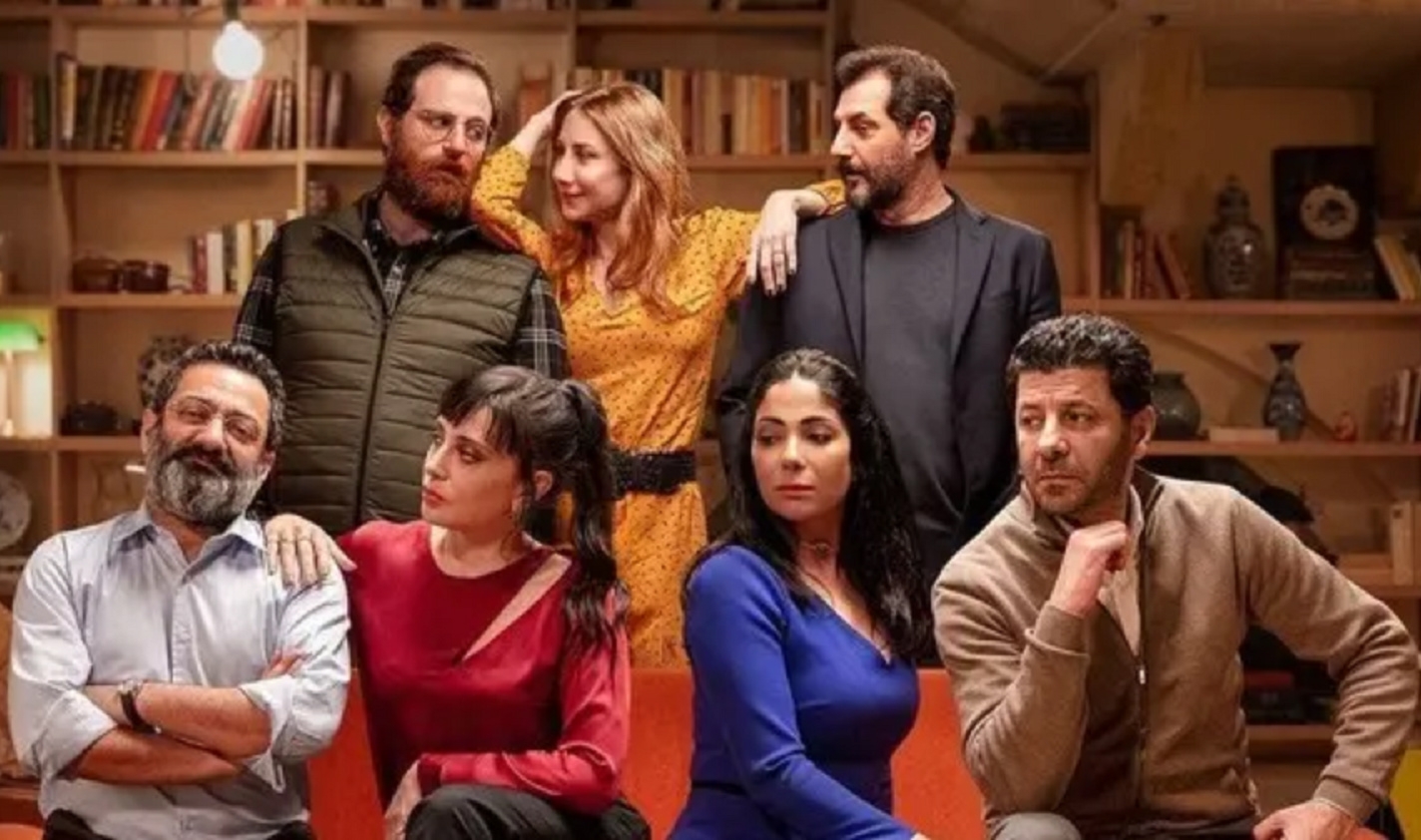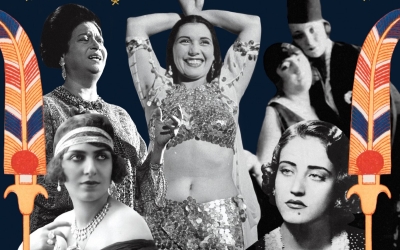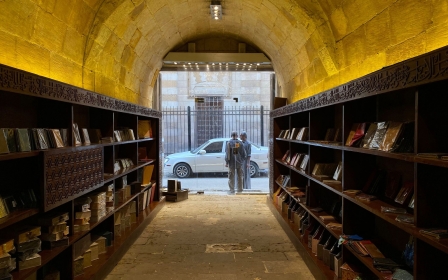Netflix’s Perfect Strangers: Egypt MPs seek law criminalising homosexuality

Egypt's lawmakers are wading into a national debate on a new Arabic film that has divided Egyptians by delving into – among other things – the controversial realms of homosexuality and cheating.
Al-Nour, the country's leading Salafist party that has seven seats in the House of Representatives, said it would prepare new legislation to toughen penalties for those involved in promoting homosexuality.
The legislation, the party leaders said, would be submitted to parliament soon after it is drafted.
"There is a growing need for reinforcing penalties for those involved in this crime," Salah Abdel-Maaboud, a senior party member, told Middle East Eye. "We cannot stand idly by while some people encourage this vice."
The film Perfect Strangers has been stirring up debate in Egypt since its screening by the US streaming service Netflix a few days ago.
New MEE newsletter: Jerusalem Dispatch
Sign up to get the latest insights and analysis on Israel-Palestine, alongside Turkey Unpacked and other MEE newsletters
The reactions to the film are pitting those advocating artistic freedom against those who want art and works of drama to abide by Egypt’s social norms and religious considerations.
Rocking the boat
Perfect Strangers is based on a movie written by Italian writer and director Filippo Bologna.
It is directed by Lebanese director Wissam Smayra, and stars Egyptian actress Mona Zaki, Jordanian actor Eyad Nassar, and Lebanese actress Nadine Labaki.
'We cannot stand idly by while some people encourage this vice'
- Salah Abdel-Maaboud, al-Nour MP
The film tells the story of seven close friends, including three couples, who agree during a dinner party to leave their cell phones unlocked on the table so that they can all have unfettered access to everything on them.
All the events of the film take place in one location, namely the dining room of the house of one of the seven friends.
By reading incoming messages out loud, and placing all calls on speaker, the seven friends reveal secrets about their personalities and their day-to-day life, some of them shocking, even to their spouses.
"I feel as if I know you for the first time," one of the seven people present at the dinner party tells her husband after surfing through his phone.
The secrets exposed range from infidelity to homosexuality. The shocking nature of the secrets unlocked about the people present is manifested in the frank language the same characters use throughout the film.
Deafening reaction
Perfect Strangers has struck a raw nerve across Egypt for several reasons, including the topics it discusses.
The backers and the opponents of the film are locking horns on airwaves and on social media.
An Egyptian lawmaker has called for banning Netflix in Egypt, accusing the giant service of intentionally destroying Egyptians’ social and religious values.
"The film contains obscene language and encourages vice, including free sexual relations," MP Mustafa Bakri said.
Bakri viewed the film as part of a wider campaign against Egyptian conservative values.
His criticism of the film angered those advocating artists' right to uncover social ailments and address issues considered taboo for decades.
"The film talks about social problems that are present already," cinema critic Tarek El Shennawi told MEE. "In calling for putting limits to artistic freedoms, some people want to bring us back many years."
Out of proportion
Debates about the film have raged online in the past few days, morphing into campaigns in support - and condemnation of - the work and its stars.
Some of Egypt's religious scholars have joined the debate with religious fervour, with one of the scholars accusing the film of encroaching on areas banned by Islam.
"Homosexuality has nothing to do with either art or religion," Mabrouk Attia, a professor of Islamic studies at al-Azhar University, said.
Other commentators called for bringing Egyptian stars of the film to court, highlighting the limits to artistic freedom and the risks that artists face by performing in controversial works.
Some people launched personal attacks on Mona Zaki, one of the most prominent actresses in the Arab world. Others went as far as calling on her husband Ahmed Helmy, a well-known comedian, to divorce her.
This prompted the Syndicate of Artists, the independent guild of cinema and TV workers in Egypt, to ask the film's critics to stop launching personal attacks against its members.
In a statement, the syndicate also defended what it called the “freedom of innovation”.
"We will not be hand-tied in the face of those who verbally attack the members of the syndicate or terrorise them," Syndicate chairman Ashraf Zaki said.
Oft-repeated
Some people believe the shock engendered by the film partly boils down to Zaki's TV and cinema record.
Zaki, one commentator said, had championed a trend in cinema and TV that showed respect to Egyptians' social and religious feelings by staying away from intimate scenes and obscene language.
Nevertheless, films discussing the same topics have not produced such a loud reaction in the past.
The Yacoubian Building, a 2006 adaptation of a novel by renowned Egyptian writer Alaa al-Aswany, talks about, among other things, a rich man who lives in downtown Cairo and trades sex with other men for money.
Cheating is also an oft-repeated topic in Egyptian films, most of the time evoking comedy or sympathy with cheated spouses.
Excuse Us, Law, a 1985 production, remains the best-known Egyptian film about cheating within marriage and how the law discriminates between men and women.
The film talks about articles in the Egyptian Penal Code that absolve men from punishment when they kill their wives if they catch them in the act of cheating, whereas they do not give the same leniency to women if they commit the same crime.
Toughening penalties
In drafting its legislation to toughen penalties on alleged homosexual activity, al-Nour cites the same Penal Code, which, Abdel-Maaboud said, does not contain sufficient deterrence in that regard.
"This is why there is a strong need for additional articles to deter these people," he said.
'We need to encourage art and artists who are part of our country's soft power. Ideas should be fought with ideas, not with restrictions'
- Hend Rashad MP
Egyptian law punishes alleged homosexual activity with prison sentences ranging between one and five years.
Al-Nour calls, however, for punishing those who promote homosexuality in works of drama.
The party is also calling for the Egyptian chief prosecutor to file a case against Egyptian participants in the film and bring them to justice for promoting such an “infringement”.
Al-Nour has 11 seats in the House of Representatives (lower chamber of parliament), less than 2 percent of the seats of the house. This may limit the party's ability to press for approval of the planned legislation.
There is already clear opposition to the proposed legislation among some MPs, including by Hend Rashad, a member of the Committee on Culture and Media in the House of Representatives.
Reaction to the film in the past few days, Rashad said, was exaggerated and blown out of logical proportion.
"We need to encourage art and artists who are part of our country's soft power," Rashad told MEE. "Ideas should be fought with ideas, not with restrictions."
However, al-Nour said it would discuss the legislation with its legal experts in preparation for drafting it in an efficient manner.
"We are consulting with everybody to get the legislation ready," party MP Sameh Bassiouni told MEE. "We want this legislation to be strong enough to protect our society against homosexuality."
Middle East Eye delivers independent and unrivalled coverage and analysis of the Middle East, North Africa and beyond. To learn more about republishing this content and the associated fees, please fill out this form. More about MEE can be found here.





